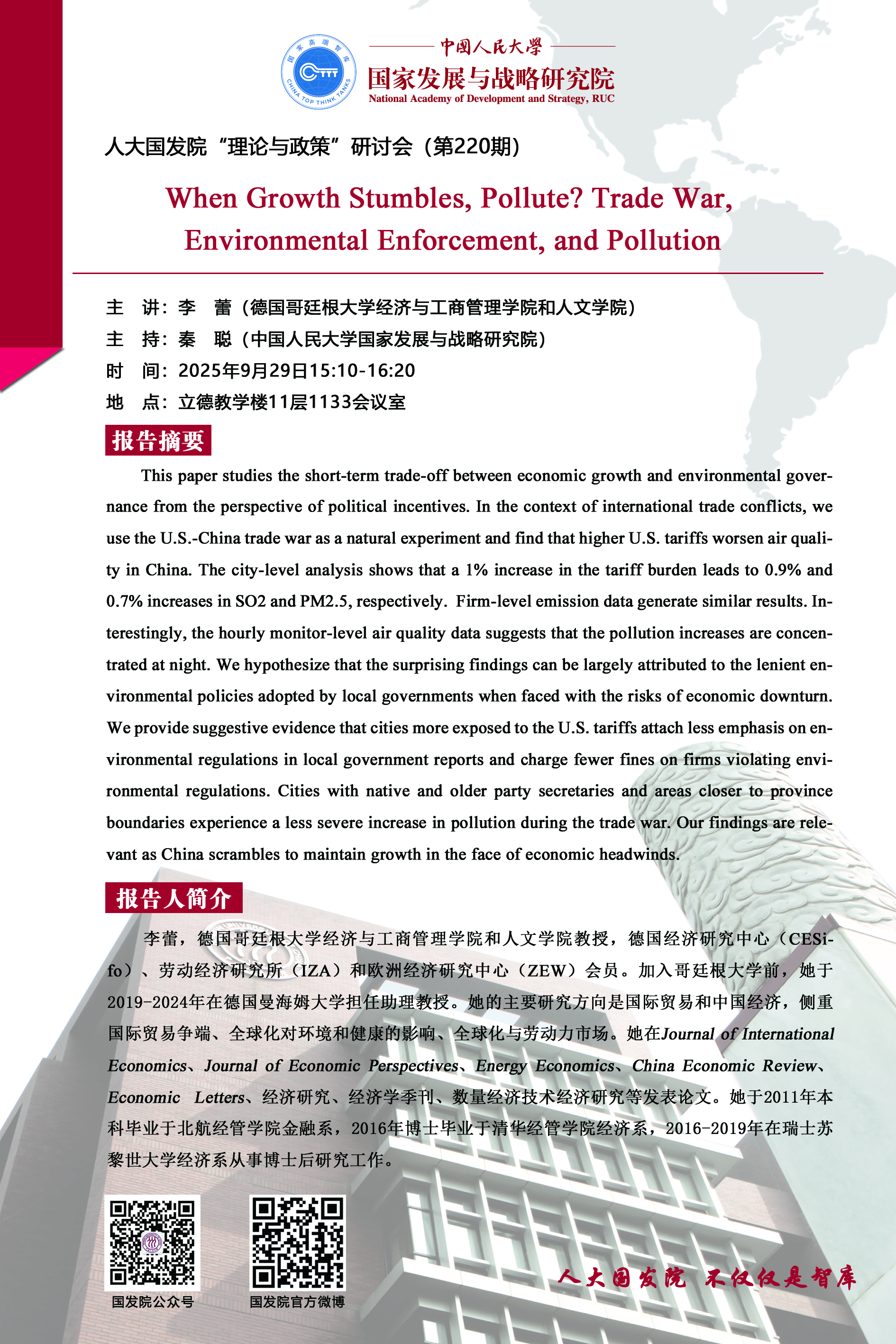 Notifications
Notifications
25
SepNational Academy of Development and Strategy (NADS), RUC
Theory and Policy Seminar, Series 220
When Growth Stumbles, Pollute? Trade War, Environmental Enforcement, and Pollution
Reported by: LI Lei(Faculty of Economics and Business Administration and Faculty of Humanities at the University of Göttingen, Germany)
Moderator: Qin Cong(National Academy of Development and Strategy, Renmin University of China)
Time: Sep 29, 2025 15:10-16:20
Venue: Room 1133, 11th Floor, Lide Building
Abstract:
This paper studies the short-term trade-off between economic growth and environmental governance from the perspective of political incentives. In the context of international trade conflicts, we use the U.S.-China trade war as a natural experiment and find that higher U.S. tariffs worsen air quality in China. The city-level analysis shows that a 1% increase in the tariff burden leads to 0.9% and 0.7% increases in SO2 and PM2.5, respectively. Firm-level emission data generate similar results. Interestingly, the hourly monitor-level air quality data suggests that the pollution increases are concentrated at night. We hypothesize that the surprising findings can be largely attributed to the lenient environmental policies adopted by local governments when faced with the risks of economic downturn. We provide suggestive evidence that cities more exposed to the U.S. tariffs attach less emphasis on environmental regulations in local government reports and charge fewer fines on firms violating environmental regulations. Cities with native and older party secretaries and areas closer to province boundaries experience a less severe increase in pollution during the trade war. Our findings are relevant as China scrambles to maintain growth in the face of economic headwinds.
